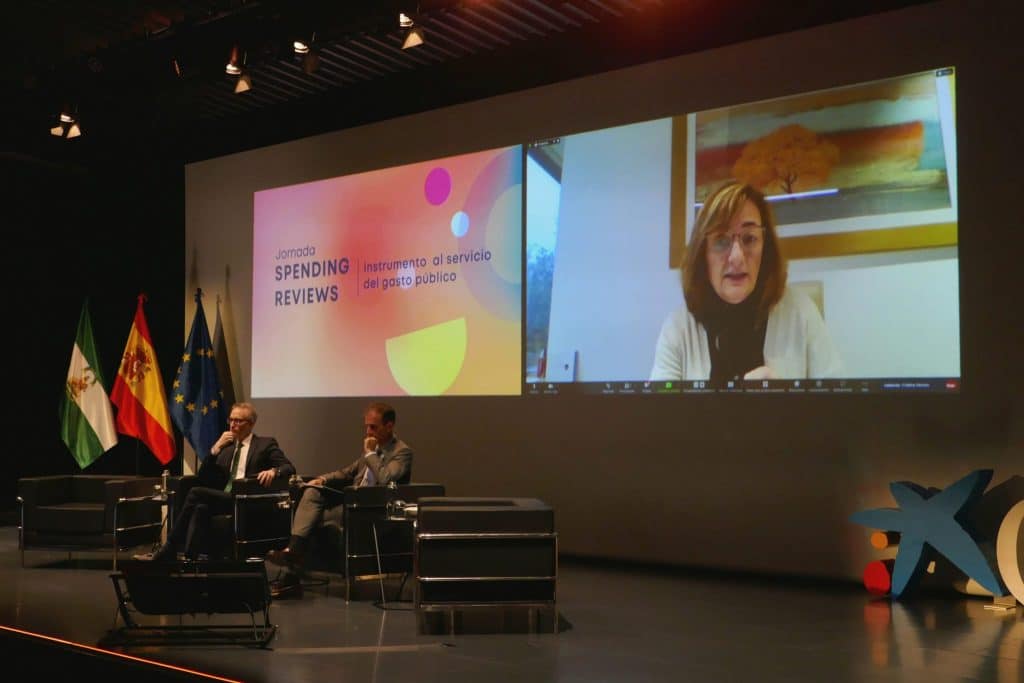The president of the Independent Authority for Fiscal Responsibility (AIReF), Cristina Herrero, participated today in the conference on Spending Reviews organized by the Institute of Studies on Public Finance of Andalusia (IEHPA) and affirmed that evaluation must be consolidated as a key tool in the sustainability of public finances.
As Cristina Herrero explained, the generation of fiscal spaces in the current economic context is complicated and the medium and long term prospects point to this situation being maintained or even extended in the future, due to factors such as the aging of the population. For this reason, it is essential to find ways to guarantee the adequate provision of public services with the available resources without putting sustainability at risk.
The president of AIReF reviewed the consolidation of evaluation over these years since the European boost it received in 2016. Today, evaluation is one of the central axes of AIReF’s activity. Moreover, the quality of public finances is a sustainability lever within the new fiscal framework proposed by the European Commission. Specifically, the Commission states that improving the quality of public finances should be one of the central elements of the medium-term structural plans to be submitted by the Member States.
According to Cristina Herrero, the assessment is here to stay, but this will require a real commitment from all the agents involved. In her opinion, AIReF is a suitable institution to carry out evaluations, but it should not be the only one. AIReF’s evaluations are complementary to those of other bodies. Furthermore, not only should there be trained evaluators, but also a willingness on the part of the Administrations to be evaluated, knowledge on the part of the Administration itself to integrate evaluation and efficiency in its processes and, finally, political will for the results of the evaluations to be taken into account.
Evaluation in AIReF
In addition to the clear synergies that exist between the evaluation and fiscal supervision functions, AIReF has other comparative advantages when it comes to conducting evaluations, such as its independence, pragmatism, technical soundness and access to data thanks to the EU shelter and the agreements of the Council of Ministers (Central Administration) or the Council of Government (Autonomous Regions) through which the evaluations are commissioned.
However, AIReF’s evaluations, without renouncing occasional commissions from particular administrations, should focus on policies of relevance and cross-cutting nature in which it has a comparative advantage, since its scope of action extends to all the Public Administrations. Health, education, employment policies, the environment, dependency, the fight against poverty, the administration of justice and R&D are some examples of the policies that should be analyzed.
For his part, the director of the Public Expenditure Evaluation Division, José María Casado, who spoke after the president, explained how policy evaluation has been incorporated into AIReF’s mission over the years and detailed the results of some studies, such as the institutionalization of the evaluation commissioned by Castile and Leon and other regional assignments related to health and education.






